Some Arctic good news – not #fakenews!
With the environment and climate under constant fire from the actions of President Trump, it is great to end the week with a little piece of good news.
This is the time of the year when Arctic buffs gather in Tromso in Norway for the annual Arctic Frontiers conference. I couldn’t make it myself this time, but have been following some of the action online, including the side-events which are often amongst the most valuable at international conferences.
Push for clean shipping
One thing that made me smile was the announcement that the famous cruise ship operator Hurtigruten had signed the Arctic Commitment, calling for a ban on the use of marine heavy fuel oil (HFO) in the Arctic.
The Clean Arctic Alliance – a coalition of environmental NGOs – is calling on the international community to sign up to the Arctic Commitment with the aim of protecting Arctic communities and ecosystems from the risks posed by the use of HFO.
The CEO of Hurtigruten, Daniel Skjeldam, signed the Arctic Commitment in Tromso.
“The use of heavy fuel oil has already been banned in the Antarctic, now it’s time to ban it in the Artic as well”, Skjeldam said. His company has chosen not to use heavy fuel oil in any of its ships.
Oil spill risk in icy waters
He urged the shipping industry to be frontrunners in “promoting regulations that will secure sustainable Arctic growth”.
“An accident involving a mega ship and spill of heavy fuel oil in the Arctic should represent an environmental disaster”, Skeldam said. There has been no shortage of experts testifiying to that.
“If heavy fuel oil is spilled in cold Arctic waters, it will have larger consequences than anywhere else. The Arctic deserves sustainable growth and innovation, and the industry needs to move first”, the shipping executive confirms.
Don’t wait for a ban
Indeed. The shipping industry could make a huge difference here by taking action without waiting for legislation or restriction. With climate change speeding ahead and the Arctic struggling to cope with the rapid changes occurring as temperatures reach record highs, while powerful politicians like Presidents Trump and Putin seem more interested in exploiting the Arctic than protecting it, companies and consumers have to take on more responsibility.
In December 2016, Canada and the US announced a joint “phase down” of HFO from their respective Arctic regions. Here’s hoping things will move forward on this in spite of the current political climate.
The Clean Arctic Alliance believes a ban on HFO in the Arctic can be achieved by 2020 if governments and business demand action by the International Maritime Organization to ban the use of HFO. In the meantime, the group is encouraging the shipping industry to switch to higher quality, alternative fuels.
Christoph Wolff, Managing Director of the European Climate Foundation, a member of the Clean Arctic Alliance, says the debate on HFO is over. “Banning the use of heavy fuel oil to power Arctic shipping will not only minimize the risk of spills, but will also help reduce climate-warming emissions in the region”, he says.
Thinking positive
When I first reported from Arctic Frontiers back in 2007, there was already a heated debate going on between those who want to develop and commercially exploit the Arctic’s resources, against the background of a warming climate, and those who want to restrict access and activity in the interests of the fragile environment and the communities who live there. I remember a discussion on the paradox of climate warming making it possible to extract more oil from the Arctic which would, in turn, cause more emissions and further melt. Shipping, too, both passenger and freight, becomes easier as the Arctic ice melts, but, in turn, causes high emissions as well as other pollution in the sensitive region.
So let’s go into the weekend with a round of applause for the tireless campaigners for a clean Arctic. It is hard for an environment journalist to be optimistic in these difficult times. But every little helps. And winning over the cruise ship industry which so many people associate with holiday expeditions into remote areas with intact nature and spectacular wildlife would be a great way to get a wider public “on board” for the voyage to protecting the icy regions of our warming planet.
Arctic climate (anti-)Trump card in Davos
With the Trump inauguration looming large, we have every reason to be more concerned than ever about the prospects for the climate. And given that the Arctic is warming twice as fast as the rest of the world, the high north could be said to be in double trouble.
All the more reason to look beyond the political stage in the narrowest terms to push the need for climate action. Take, for instance, the “Arctic Basecamp” which has been set up in Davos in Switzerland, where that illustrious gathering the World Economic Forum (WEF) is underway. “Responsive and responsible leadership” is the theme, with 3,000 participants attending, more than ever before. And the biggest delegation is from the USA, with 836 participants.
It's cool to learn how to build an #Arctic Basecamp but it's cooler to learn why #ArcticMatters Will you join on FB LIVE 10am CET, tomorrow? pic.twitter.com/1HUHuMqM0O
— ArcticBasecamp Davos (@ArcticDavos) January 17, 2017
Given the president elect’s views on climate change, the decision by some influential scientists to use the mega economic gathering of the great and mighty is a smart move. It seems the time has come to acknowledge that we cannot rely on governments alone to halt climate change and preserve the Arctic ice. Maybe we just have to admit that business has a huge impact, huge potential, and should bear a lot of the responsibility for climate protection? And of course, the chance to get an urgent climate message across to a group of highly influential people from business and politics is just too good to miss.
Time for some responsive and responsible leadership for the Arctic?
A group of leading scientists are holding an Arctic Science Summit in Davos on January 18th, and plan to call on global leaders for immediate action on the Arctic. The summit is a collaboration between Lancaster University, the British Antarctic Survey (BAS) and the Swiss Federal Institute for Forest Snow and Landscape Research (WSL).
Against the background of unprecedented temperatures almost 20 °C (36 Fahrenheit) warmer than normal in some parts of the Arctic this winter, the summit is designed as a call to action to global leaders to apply the theme of “Responsive and Responsible Leadership”, in tackling the global risks posed by Arctic change. Al Gore, Chair of the Climate Reality Project and Christiana Figueres, the former Executive Secretary of the United Nations Framework Convention on Climate Change, are amongst the high profile figures invited.
The summit is being hosted in Arctic Basecamp style tents in the grounds of the WSL, which is aptly positioned close to the official delegate hotel. A good publicity stunt. The tents are a catchy contrast to the luxury accommodation around them. The equipment is provided by the British Antarctic Survey, (BAS) another of the organisers. A reputed scientific organization and active in a region that captures the imagination of a wide audience as the coldest, remotest place on the planet. And which, still, is not immune to the effects of global warming.
Global platform for Arctic action
To Iceblog readers, the message from Jeremy Wilkinson, one of the organizers from BAS, comes as no surprise: “What happens in the Arctic doesn’t stay there. The Arctic is the canary in the coalmine for the world’s climate.” But many of the world’s most powerful decision-makers still haven’t got the message, he says. (Tut-tut, not all following the Iceblog??):
“It (the Arctic) is sending us a warning cry that has profound consequences and risks globally. Yet the Arctic remains invisible to the world’s most powerful decision-makers. We want to change that.”
His colleague from the British University of Lancaster, Professor Gail Whiteman, writes on the BAS website:
“We know that science has important answers in assessing the global risks associated with the Arctic ice melt and we need to make this as visible as possible in Davos. Arctic change is at a critical juncture; hard choices need to be made. These must be evidence-based and not ideologically driven. Ultimately we want to see a new Global Platform for Arctic Action, and it starts here with this summit.”
Renowned climate expert Professor Konrad Steffen is Director of the Swiss Federal Institute for Forest, Snow and Landscape Research WSL. He, too, stresses the need for urgent action and the global relevance of the melting ice:
“The Polar Regions, as well as Alpine regions, will experience two to three times the mean level of global warming predicted for the future. We need to act swiftly to delay, or prevent, the loss of the ice masses in the mountains and the shrinking of the two polar ice sheets which will lead to unsustainable sea level rises.”
“Everybody who’s anybody…”
In a piece for the Arctic Journal entitled “Bringing the Arctic to the mountain”, journalist Kevin McGwin writes:
“Unofficially, Davos is the place to be if you consider yourself to be anyone in politics, business or the non-profit industry, and folks who attend have a saying of their own: the more programme events you turn up at, the less you get out of it. The real action takes place on the sidelines.”
Here’s hoping there is plenty of that at the Arctic Basecamp. McGwin goes on:
“Considering that 3,000-person guest list starts with António Guterres, the newly installed UN secretary-general, and encompasses multiple heads of state (including Xi Jinping) and captains of industry from over 1,000 companies, there is probably something to this.”
Indeed. If you want to reach a lot of very influential people with a message about risks associated with climate change, Davos is certainly one place to do it. McGwin notes that the major Arctic Frontiers gathering is taking place in Tromso, Norway, at the same time. I have attended that event several times in recent years. It is undoubtedly an important meeting with a scientific and a political section. But the global players gathered in Davos should, in principle, be able to exert far more influence when it comes to changing the economic and energy patterns which have been the basis for bringing about the climate change that is melting the Arctic.
Arctic melt – business opportunity?
The WEF also reaches wider media coverage, and, arguably, those who really need to change things. Preaching to the converted will not stop climate warming. McGwin quotes Gail Whiteman:
“Few outside the region have an idea of the role the Arctic plays, or the changes it is facing. Those that do tend to see the changes as an opportunity.”
This puts one of the key problems with Arctic climate change in a nutshell. Melting ice means easier access, more activity and thus higher risks for the fragile ecosystem – and ultimately, possibly more climate warming through increased emissions.
Professor Whiteman told McGwin:“We are at Davos to make the Arctic visible. Arctic change is at a critical point, and the kind of decisions that need to be made start at Davos.”
The organizers will also be circulating a petition asking Davos participants to contribute to a kitty to help fund an information campaign to keep decision-makers up to date on what is happening in the Arctic.
It seems the Arctic basecamp idea first came up at Arctic Frontiers in Tromso back in 2012. The Arctic Journal says Whiteman realized, during a discussion there, that people were very keen to get people in the boardrooms of companies to talk about the risk Arctic change was posing to their business. It dawned on Whiteman that the place to reach these people would be in Davos rather than Tromso.
At last year’s meeting, the WEF issued an Arctic Investment Protocol. Whiteman, worries that “once investors take an interest in the Arctic, they will see the opportunity but overlook the risk”.
If the message that “what happens in the Arctic doesn’t stay in the Arctic”is to sink in, McGwin concludes his article, then “what happens in Davos must not stay in Davos”.
Agreed, colleague. But, as we know, competition for public attention is fierce. Let us hope that the Arctic Basecamp will not be upstaged by the other events going on in the Swiss alps this week. And that the overall focus there “Responsive and Responsible Leadership”, and the need for international dialogue and concerted action rather than isolationism will still make the world headlines as the Trumpocene commences across the Atlantic.



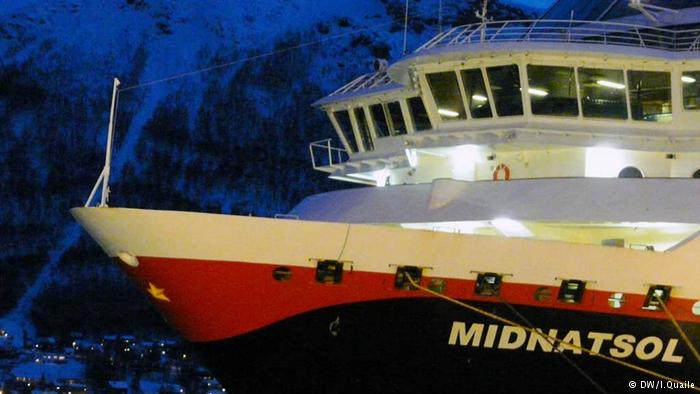
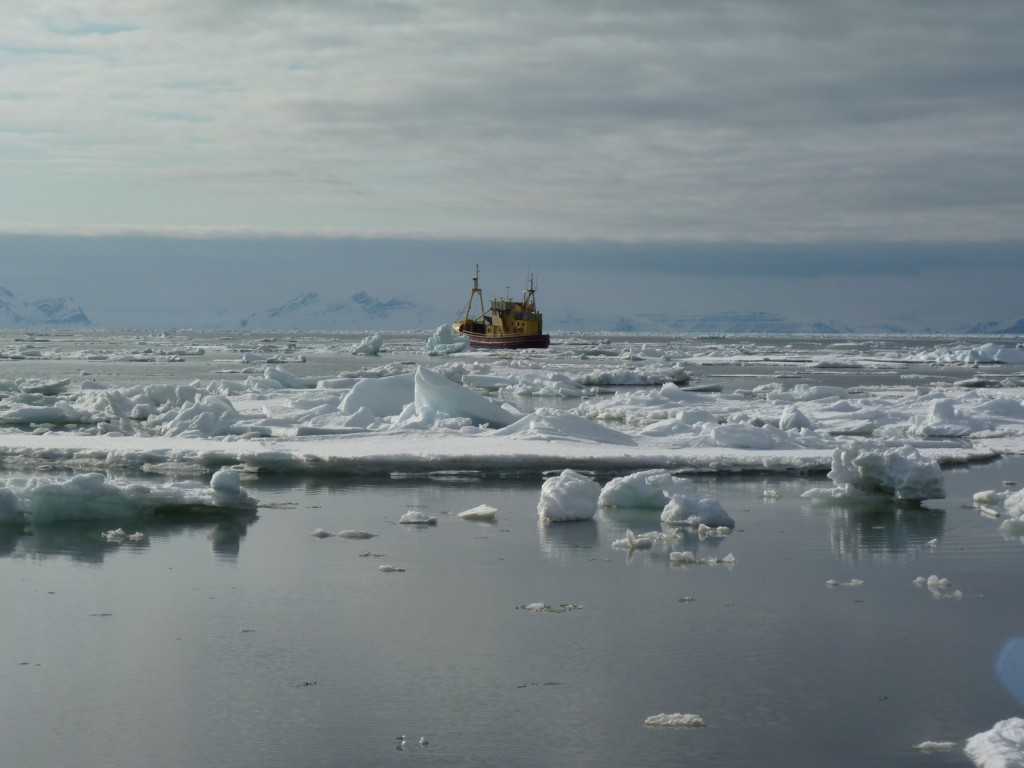


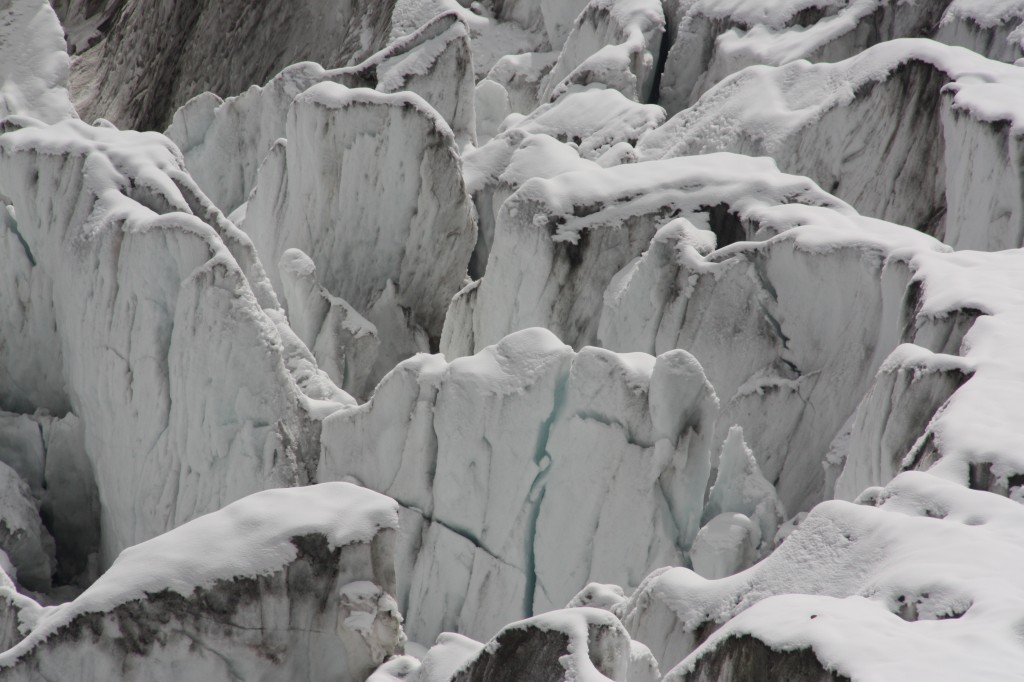
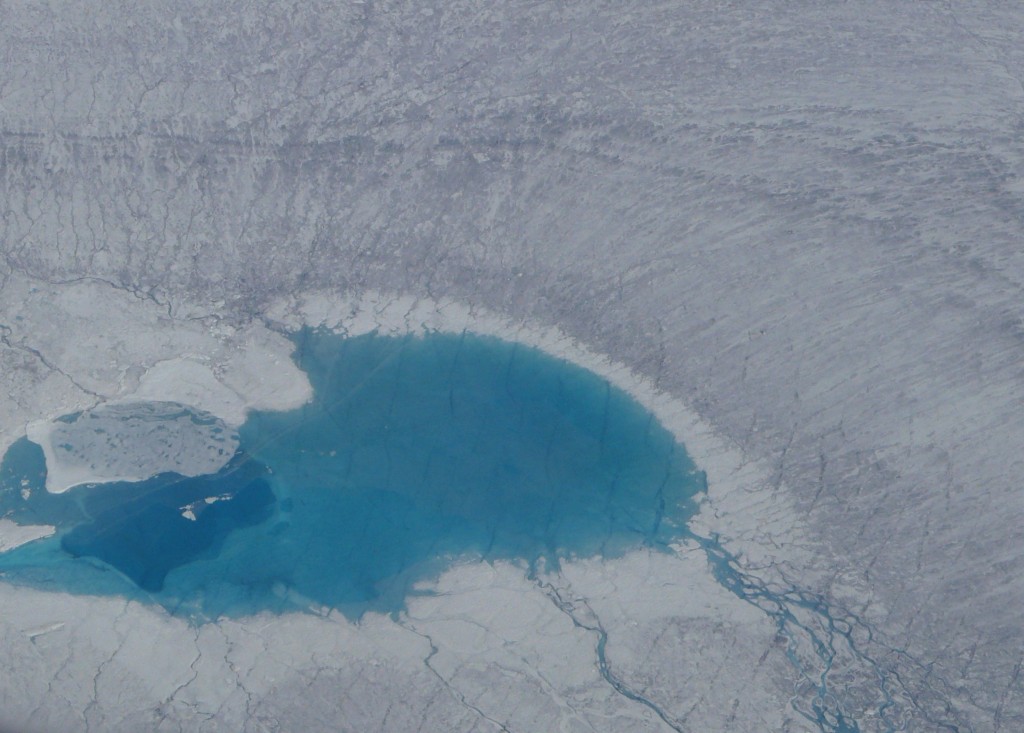

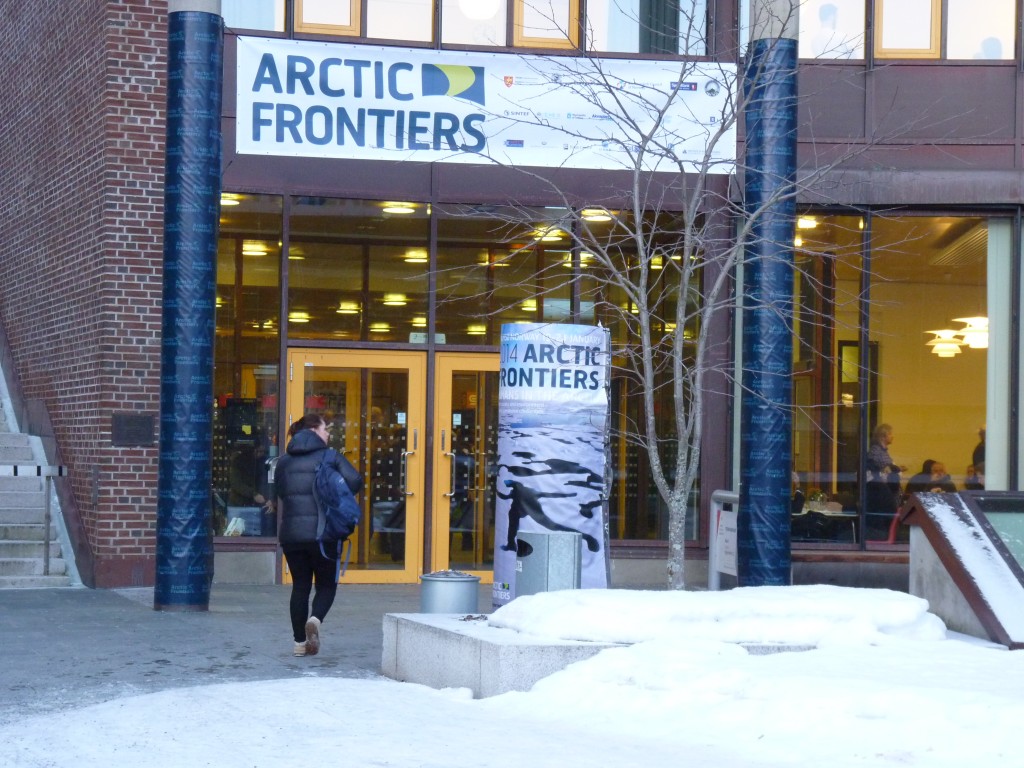












Feedback